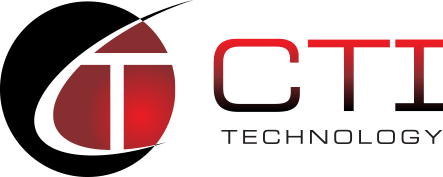Does Your Outsourced IT Firm Understand Your Law Office Software? Essential Compatibility Factors to Consider
Law firms rely on specialized software to manage cases, track billable hours, and protect sensitive client data. When outsourcing IT support, partnering with a firm that understands these unique needs is crucial. An outsourced IT provider that comprehends your law office software doesn’t just fix technical issues—they enhance your firm’s productivity, security, and competitive edge in today’s digital legal landscape.
Many law firms struggle with IT partners who lack familiarity with practice management software and other legal-specific applications. This knowledge gap can lead to extended downtime, security vulnerabilities, and inefficient workflows impacting billable hours and client service. The right IT partner will understand how your specialized software integrates with other systems and can provide customized support to meet your firm’s specific requirements.
Finding an IT firm with expertise in legal software means you’ll have access to professionals who can streamline operations, enhance cybersecurity, and help your practice leverage technology for growth. They’ll understand the critical nature of case management systems, document automation, and the heightened security demands of handling confidential client information.
Key Takeaways
- Your IT provider should demonstrate expertise in legal-specific applications to support your firm’s core operations properly.
- Effective IT partners balance technical knowledge with understanding legal workflows to enhance productivity and billable hours.
- Proper IT support for law firms must prioritize data security and compliance while enabling seamless software integration.
Understanding Law Office Software Requirements
Law firms require specialized IT support that understands the unique software ecosystem essential for legal operations. Your outsourced IT provider must comprehend these requirements to support your practice effectively.
Specialized Applications for Legal Practices
Legal practices rely on several category-specific applications that general IT providers may not fully understand. Case management systems like Clio, MyCase, and Practice Panther form the backbone of modern law firm operations.
Document management solutions such as iManage, NetDocuments, and Worldox require specific configurations to handle legal documents efficiently. These systems must integrate seamlessly with your workflow.
E-discovery tools like Relativity and Logikcull need technical expertise to be properly implemented and maintained. Your IT provider should understand how these tools interact with other systems in your technology stack.
Time and billing software, including PCLaw, Timeslips, and Tabs3, demands proper setup to ensure accurate client invoicing. An IT provider with legal industry experience will know how to optimize these systems for your firm’s needs.
Confidentiality and Security Protocols
Attorney-client privilege necessitates robust security measures beyond standard business protocols. Your IT provider must implement appropriate cybersecurity measures tailored to legal data protection requirements.
Multi-factor authentication should be configured for all sensitive applications. This additional security layer helps protect confidential client information from unauthorized access.
Data encryption protocols must be properly implemented for stored and transmitted information. Your IT firm should understand encryption standards specific to legal requirements.
Access controls must be granular enough to restrict document visibility based on matter, client, or practice area. A provider familiar with legal software can establish these permission structures correctly.
Regular security audits should be conducted to identify potential vulnerabilities in your systems. Your IT partner should proactively schedule these reviews rather than waiting for a breach.
Compliance and Regulatory Standards
Your law firm must adhere to various data protection regulations that impact how your software is configured. IT providers serving legal clients should understand requirements like GDPR, CCPA, and industry-specific regulations.
E-filing systems must be properly maintained to ensure court document submissions meet jurisdictional requirements. Your IT partner should understand the technical specifications required by different court systems.
Legal-specific applications often require updates to comply with changing court rules and regulations. An experienced IT provider will proactively manage these updates to prevent compliance issues.
Ethical rules regarding client communication and data storage have technical implications for your systems. Your IT partner should implement configurations that maintain ethical compliance.
Audit trails must be properly enabled and preserved across all systems. These trails are essential for both internal governance and potential discovery requirements.
Evaluating Your Outsourced IT Firm’s Expertise
Determining if your IT provider truly understands your law firm’s technology needs requires a methodical assessment of their technical capabilities and industry experience. Proper evaluation ensures you don’t waste resources on partners ill-equipped to handle your specialized software environment.
Assessment of Technical Competence
When evaluating an IT provider, request detailed information about their familiarity with law-specific applications like case management, document automation, and e-discovery platforms. Ask pointed questions about their experience with software your firm uses daily.
Competency assessment should include reviewing their certifications and technical credentials. Are they certified in the systems you rely on? Do they understand how these systems integrate?
Consider arranging a technical interview between your potential IT provider and power users. This reveals whether they can speak intelligently about your software ecosystem or offer generic IT support.
Request documentation of their troubleshooting protocols for legal-specific software issues. Competent providers will have established procedures rather than approaching each problem from scratch.
Track Record with Legal Industry Clients
Examine the provider’s history of working with law firms specifically. Generic IT support differs significantly from legal technology management, which requires understanding confidentiality, compliance, and legal workflows.
Ask for references from similar-sized law firms in your practice area. Contact these references with specific questions about how the provider handled software-specific challenges.
Review case studies demonstrating their problem-solving capabilities for legal software implementations. Effective providers will showcase examples of optimizing practice management systems or streamlining document workflows.
Investigate their understanding of cybersecurity for law firms, which involves specialized knowledge of protecting sensitive client data. This expertise is crucial given the confidential nature of legal work.
Communication and Understanding Client Needs
Effective communication between law firms and IT providers ensures technology solutions address attorneys’ unique challenges. Clear channels of dialogue help bridge the knowledge gap between legal professionals and technical specialists.
Regular Reporting and Feedback Mechanisms
The best outsourced IT services for law firms establish consistent reporting schedules that keep you informed without overwhelming your team. Weekly status updates should highlight recent support requests, system health metrics, and any security concerns requiring attention.
Effective providers implement multiple feedback channels, including:
- Quarterly business reviews to assess alignment with firm objectives
- Satisfaction surveys following support ticket resolutions
- Dedicated account managers who understand your practice areas
- Client portals for 24/7 access to service metrics
These mechanisms create accountability and ensure your IT provider responds to changing needs. They should document all communications in language attorneys can understand, avoiding technical jargon that obscures important details.
Adjusting Strategies for Client-Specific Demands
Your IT provider must recognize that law firms use technology from client record management to eDiscovery and cross-office communication. This requires flexibility in their approach to support.
Quality providers demonstrate adaptability by:
- Conducting thorough needs assessments before implementing solutions
- Creating customized support protocols for mission-critical applications
- Providing training resources tailored to different user proficiency levels
When evaluating providers, look for those willing to modify their standard offerings. The best partners will adjust maintenance windows around court deadlines and develop backup strategies considering your document retention requirements.
They should proactively suggest technology improvements based on their understanding of your practice areas rather than pushing generic solutions that ignore your workflow realities.
IT Support and Maintenance Strategies
Effective maintenance of your law firm’s technology infrastructure requires strategic approaches that prevent issues before they impact productivity. The right IT partner delivers preventative care and responsive solutions when problems arise.
Proactive Issue Resolution
Proactive maintenance ensures your law firm’s IT systems operate smoothly by identifying and addressing potential issues before they evolve into significant problems. This approach minimizes downtime that could otherwise cost your firm billable hours and client trust.
Quality IT providers implement automated monitoring systems that continuously scan your network for irregularities. These tools detect early warning signs like unusual network traffic patterns or declining server performance.
Regular system updates and patch management should be handled during non-business hours to avoid disrupting your workflow. Your IT partner should provide detailed monthly reports highlighting resolved issues and potential future concerns.
Look for providers offering guaranteed response times in their service level agreements. This ensures critical problems affecting case management or document systems receive immediate attention.
Ongoing Training and Support
Your legal team needs more than just functioning technology—they must know how to use it effectively. Outsourced IT services should include comprehensive training programs tailored specifically for legal professionals.
The best IT partners offer:
- Personalized training sessions for new software implementations
- Quick-reference guides for commonly used legal applications
- Help desk support with specialists familiar with legal software
- Regular “lunch and learn” webinars featuring efficiency tips
When evaluating support quality, examine how the provider handles basic and complex questions about your specific legal applications. Their team should understand the nuances of document management systems, e-discovery tools, and practice management software.
Ensure your IT partner provides multi-channel support options, including phone, email, and chat. This flexibility allows your attorneys to seek help in whatever format works best during different situations.
Customization and Integration Capabilities
Effective IT solutions for law firms must adapt to unique workflows while connecting seamlessly with existing technologies. The ability to customize and integrate legal software directly impacts daily operations and long-term efficiency.
Tailoring Solutions to Your Law Office
When evaluating an outsourced IT provider, their understanding of customization options for legal software is critical. Your IT partner should recognize that practice management software can be customized to match your firm’s operations.
Look for providers who ask detailed questions about your workflow before suggesting changes. They should understand document management preferences, client intake processes, and billing requirements unique to your practice area.
Strong IT partners will suggest customizations that:
- Align with your firm’s specific practice areas
- Accommodate different user permission levels
- Adapt to your preferred communication channels
- Configure matter management to your workflow
The right provider won’t force generic solutions but will tailor systems to support your established procedures while improving efficiency.
Seamless Integration with Existing Systems
Your law firm likely relies on multiple software platforms that must work together cohesively. An effective IT provider should optimize your technology to create a unified ecosystem rather than disconnected tools.
Integration capabilities should include connecting:
- Case management systems with accounting software
- Document management with email platforms
- E-filing systems with internal databases
- Time tracking with billing applications
Your IT partner should demonstrate familiarity with legal-specific integrations like court filing systems, legal research platforms, and e-discovery tools. This expertise is why many firms seek specialized IT support familiar with legal software.
Pay attention to how they handle data migration between systems. Proper integration prevents duplicate data entry and creates automated workflows that save your staff valuable time.
Data Management and Protection
Law firms handle sensitive client information that requires careful management and protection. When outsourcing IT services, having partners who understand legal data requirements is critical for operational efficiency and compliance.
Implementing Robust Backup Solutions
Your outsourced IT provider should implement a comprehensive backup strategy tailored to legal environments. Look for partners who understand the importance of multiple backup systems with on-site and cloud storage options to protect against data loss.
The best IT partners will set up automated backup schedules that don’t interfere with your firm’s operations. They should test backups regularly to ensure data can be restored when needed – not just stored.
For legal-specific applications like case management systems, document management platforms, and billing software, your IT provider needs to understand the unique backup requirements of each system. Many legal applications store data in proprietary formats that require specialized knowledge.
Your provider should also establish clear retention policies that align with legal requirements for document preservation while managing storage costs effectively.
Ensuring Data Integrity and Accessibility
Client confidentiality and regulatory compliance depend on maintaining data integrity. Your IT provider must implement enhanced security measures that protect data while ensuring it remains accessible to authorized users.
Access controls should be granular enough to limit information access based on need-to-know principles. This is especially important for sensitive cases or privileged information.
Your IT provider should understand compliance requirements specific to legal data, including state bar regulations and client-mandated security protocols. They should help your firm maintain compliance with regulations like GDPR or CCPA when applicable.
Look for providers who can implement encryption for data both in transit and at rest. This dual protection approach safeguards information, whether stored on servers or transmitted between systems.
Regular security audits and vulnerability assessments should be part of your data management strategy to identify and address potential weaknesses before they can be exploited.
Future-Proofing Law Office Technology
Ensuring your law firm stays technologically relevant requires strategic planning and partnership with IT providers who understand the evolution of the legal industry. The right approach combines staying current with new developments while building scalable infrastructure.
Keeping Up with Technological Advances
Law technology evolves rapidly, with new case management platforms, document automation tools, and AI-powered legal research emerging constantly. Your outsourced IT provider must demonstrate familiarity with legal-specific software updates and emerging technologies.
A quality IT partner should provide regular briefings on new tools relevant to your practice areas. They should help evaluate whether technological advancements will positively impact your legal practice to justify implementation costs.
Look for providers who:
- Attend legal technology conferences
- Maintain certifications for law-specific platforms
- Offer training when implementing new solutions
- Provide technology roadmaps aligned with your firm’s strategic plans
Scalability for Growing Practice Needs
Your IT infrastructure must grow alongside your firm. Managed IT services offer a lifeline when you need to scale quickly without disrupting operations.
Discuss your growth projections with potential IT partners. They should recommend solutions that accommodate expansion without requiring complete system overhauls. Cloud-based solutions often provide the flexibility needed for growing firms.
Key scalability considerations include:
- User licensing models that allow easy addition of attorneys and staff
- Storage solutions with on-demand expansion capabilities
- Remote work capabilities to support satellite offices
- Security protocols that maintain compliance regardless of firm size
Investing in managed IT services isn’t just about technology—it’s about creating infrastructure that supports your firm’s evolution and client service improvements for years.
Choosing the Right IT Partner for Your Law Office
Selecting the right IT provider for your law firm is a critical decision that impacts day-to-day operations and long-term success. The ideal partner should understand both technology and the unique needs of legal practices.
When evaluating potential IT partners, look specifically for providers with experience in the legal sector. These specialists will be familiar with common law office software and compliance requirements that general IT companies might overlook.
Ask prospective vendors for specific examples rather than hypothetical scenarios. This approach prevents them from telling you what they think you want to hear and reveals their capabilities.
Strong references from other law firms should be a non-negotiable requirement. Contact these references directly to inquire about their experiences.
Your IT partner must demonstrate a thorough understanding of:
- Case management software
- Document management systems
- E-discovery tools
- Legal research platforms
- Time and billing applications
Verify their knowledge of compliance requirements relevant to your practice areas. This includes data security standards and client confidentiality protocols.
Consider providers that offer managed IT services rather than break-fix models. Proactive monitoring and maintenance can prevent costly downtime.
Evaluate their response times and availability. Legal deadlines wait for no one, so you need an IT partner to provide prompt support when critical systems fail.
IT outsourcing can streamline operations like cybersecurity while reducing costs. The right partner will help your firm stay competitive in an increasingly digital legal.


Why CTI Technology Is The Only Choice When Outsourcing Your Law Firms IT Support Needs
CTI Technology is the premier choice for law firms seeking specialized IT support. Their deep understanding of legal software and case management systems ensures your firm operates efficiently.
Law firms benefit significantly from outsourcing their IT operations to specialists who understand their unique needs. CTI Technology has positioned itself as the leader in this specialized field.
Their team offers secure access to your firm’s data, allowing attorneys and staff to work remotely while maintaining billable hours. This mobility is crucial in today’s legal landscape.
Client testimonials speak volumes about CTI’s reliability:
- Great pricing, even better service
- “Would not trust my IT services to anyone else”
- “Their quick response and professionalism saved our company”
Since 2004, CTI has built expertise specifically tailored to legal practices in the Chicago area. They offer specialized support for Barrington law firms and throughout the region.
Their flat-rate pricing structure (ranging from $200-$400 per user monthly) eliminates unexpected costs—a crucial advantage for law firms managing client budgets.
CTI Technology maintains strict HIPAA compliance and security protocols, ensuring all client information remains confidential and protected. This commitment to security is essential for maintaining attorney-client privilege.
Their comprehensive services include:
- Case management software support
- Data backup and disaster recovery
- Cybersecurity protocols
- Desktop and server maintenance
- Office 365 integration
By partnering with CTI Technology, your law firm can focus on practicing law while experts handle your IT infrastructure. Their understanding of legal software makes them uniquely qualified to support your practice.
Why Is CTI Technology The Best Choice For IT Services In The Chicagoland Region?





















